When your commercial heat pumps not working in stewiacke ns, it can bring business operations to a standstill. A system failure leads to unhappy customers, reduced employee productivity, and potential damage to temperature-sensitive inventory. Commercial units work harder than residential systems, serving larger spaces and making them prone to sudden failures, especially during a cold snap or after a power outage.
Quick Troubleshooting Checklist for Commercial Heat Pumps:
Many common issues have simple solutions that business owners can address themselves. Understanding the warning signs and knowing when to troubleshoot versus when to call an expert can save you time and money. This guide walks you through identifying problems, performing basic troubleshooting, and recognizing when it's time to bring in certified HVAC professionals.
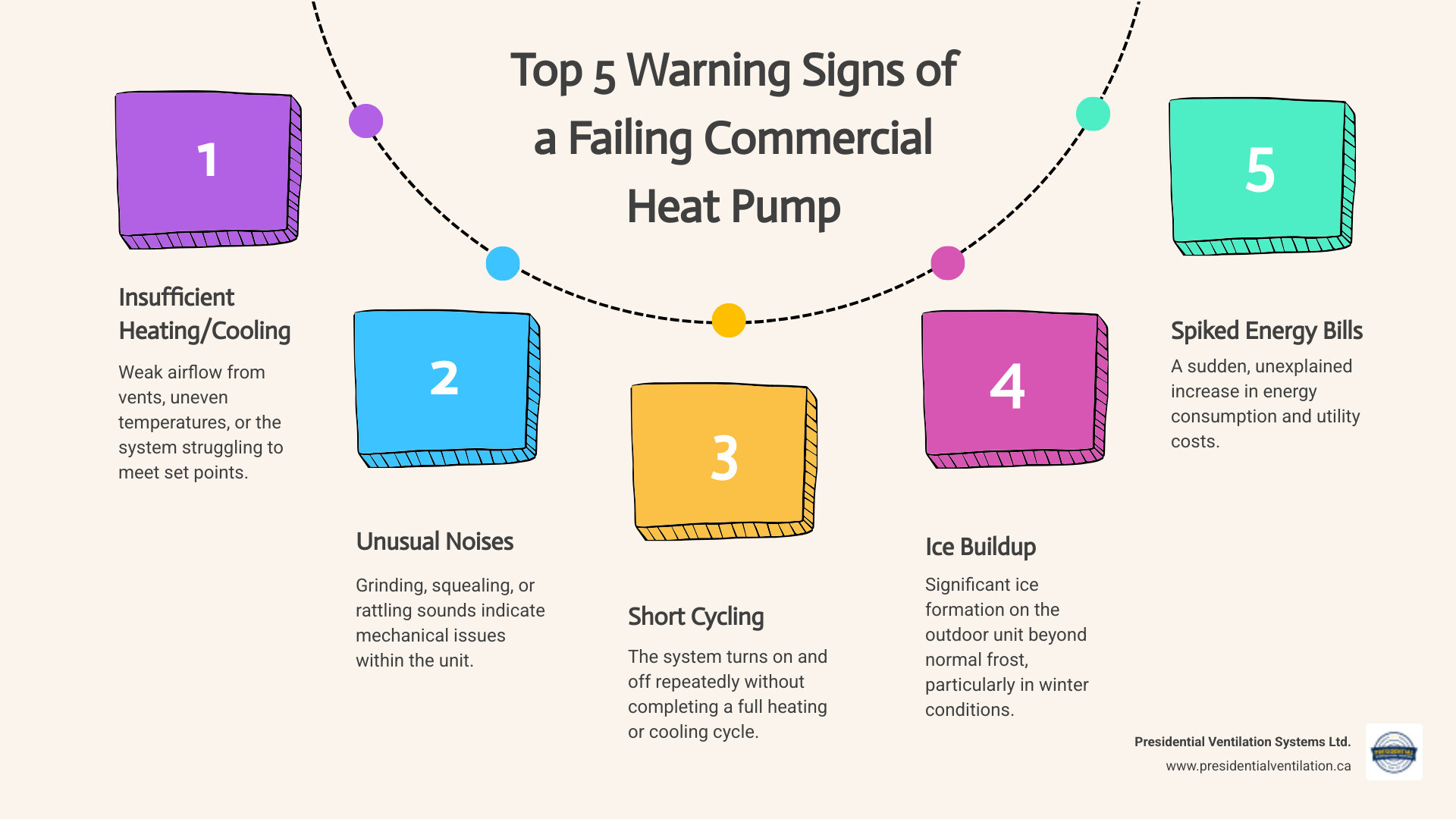
When your commercial heat pumps not working in stewiacke ns, it's often preceded by clear warning signs. Catching these early can mean the difference between a quick fix and a complete system breakdown. Look out for these red flags:
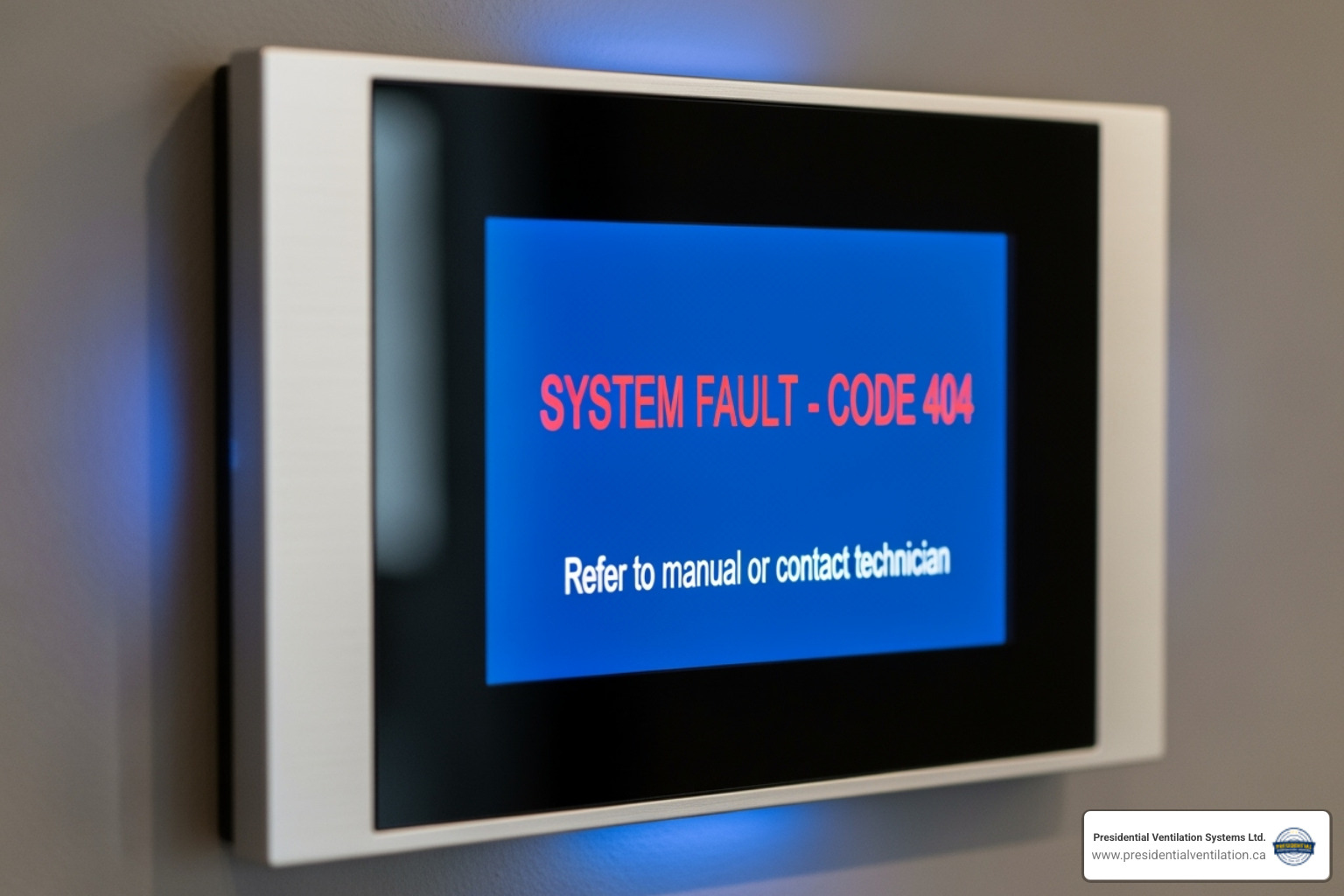
Nova Scotia's weather pushes commercial heat pumps to their limits. Understanding these local challenges can help you spot problems early.
When your commercial heat pumps not working in stewiacke ns, don't immediately call for service. Several straightforward checks might solve the problem, saving you time and the cost of a service call.
When basic troubleshooting doesn't work, the issue with your commercial heat pumps not working in stewiacke ns is likely more complex. Understanding these common causes can help you communicate with your HVAC technician.
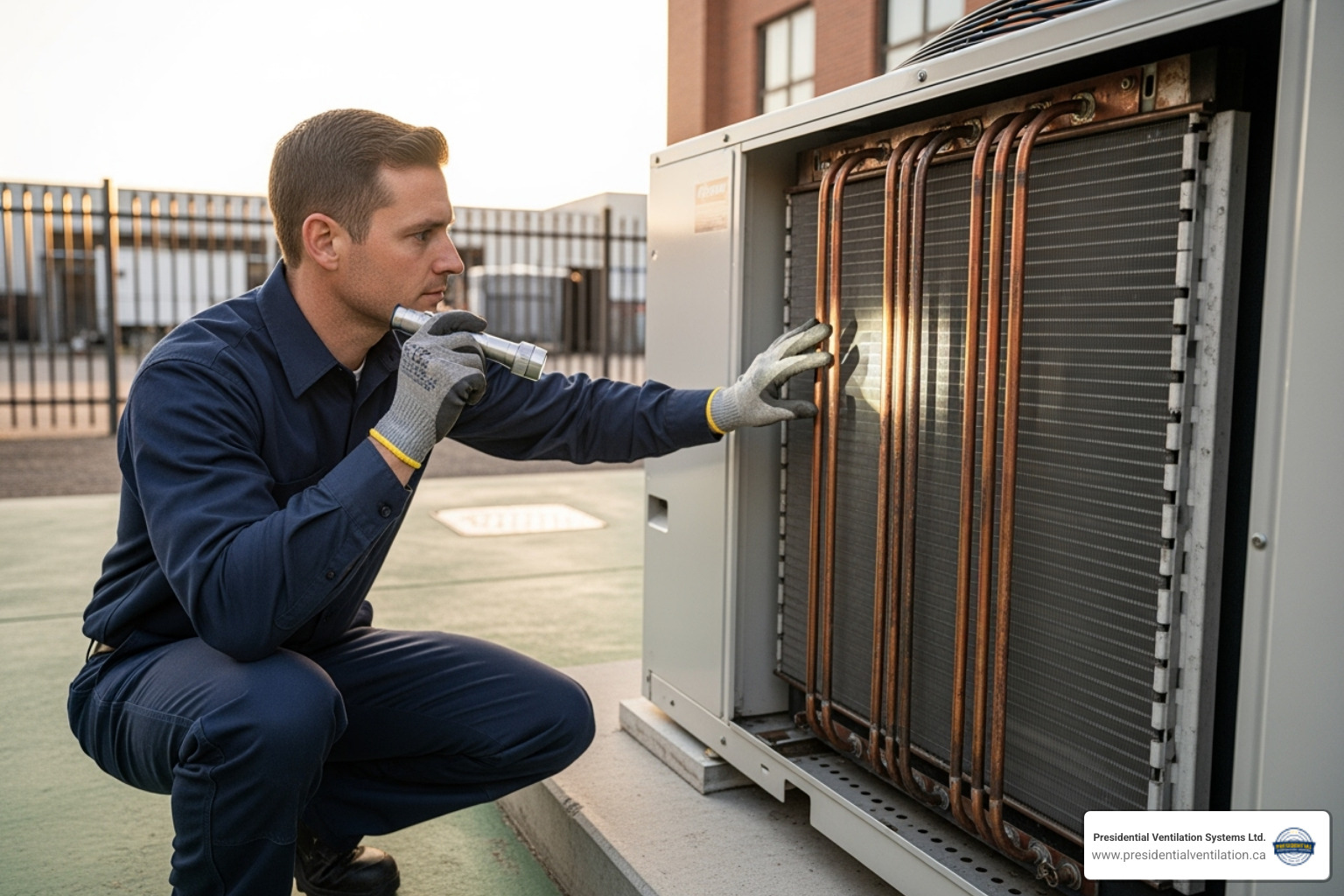
Stewiacke's cold, damp winters place unique demands on heat pumps.
Know when to step back and call an expert to ensure safety and prevent further damage. Contact a professional for:
Overlooking regular maintenance for your commercial heat pump is like skipping oil changes for your company vehicles. It's a critical practice to prevent a crisis when your commercial heat pumps not working in stewiacke ns during extreme weather. The key benefits include:
A structured schedule ensures your system gets the care it needs.
As your heat pump ages, it's important to plan for the future.
When your commercial heat pumps not working in stewiacke ns, questions arise. Here are clear answers to common concerns from Stewiacke business owners.
A solid block of ice on your outdoor unit indicates a problem. While light frost is normal, heavy ice buildup is often caused by:
Do not chip away at the ice, as this can damage the unit. If the ice doesn't clear on its own, call a professional.
The decision depends on the unit's age, the frequency of breakdowns, and the repair needed. As a general rule, if your heat pump is over 10-15 years old and requires frequent or major repairs, replacement is often the more cost-effective long-term solution. An aging, inefficient unit costs more in energy bills and repeated service calls. A new, energy-efficient model offers reliability, a fresh warranty, and lower operating costs that can provide a significant return on investment.
A heat pump that runs non-stop is struggling to reach the set temperature. Common causes include:
If you've replaced the filters and cleared vents but the problem persists, it's time for a professional inspection.
When commercial heat pumps not working in stewiacke ns, it impacts your bottom line. We've covered the warning signs, DIY troubleshooting, and common reasons for failure in our challenging Nova Scotia climate. Simple actions like checking thermostats, replacing filters, and keeping the outdoor unit clear can prevent many problems.
However, some issues demand professional expertise. Refrigerant leaks, complex electrical faults, and compressor problems are not DIY fixes—they require a certified technician for a safe and effective repair.
At Presidential Ventilation Systems Ltd., we have served businesses across Nova Scotia since 1993. Our three decades of experience mean we understand what it takes to keep commercial heat pumps performing reliably. As a leading Daikin Comfort Pro Dealer, we combine manufacturer expertise with local knowledge.
We know your business can't afford downtime. Our technicians provide accurate diagnostics and honest recommendations to get your system running efficiently. Whether you need an emergency repair, preventative maintenance, or advice on replacement, we are here to help.
Don't wait for a minor issue to become a major disruption. Let us help keep your Stewiacke business comfortable and operating smoothly.
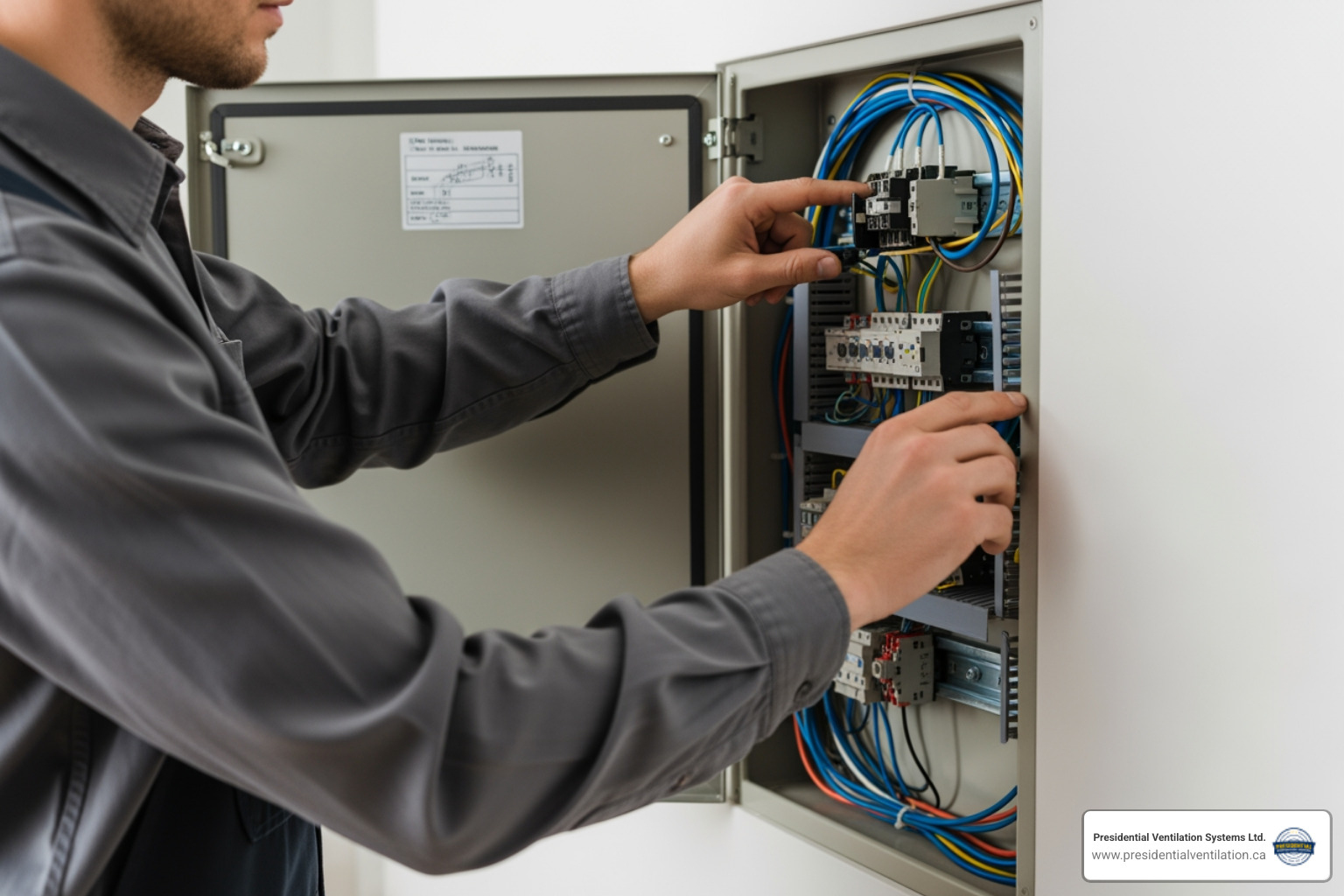

When you need residential electrical in mount uniacke, ns, you need a licensed electrician who understands local safety codes and the unique challenges of the area. Many homes in Mount Uniacke are older, with electrical systems unequipped for modern demands like heat pumps, EV chargers, or smart home technology. From outdated aluminum wiring to the need for generator solutions on rural properties, keeping your electrical system up-to-date is essential for safety and efficiency. Understanding when to call a professional can protect your home and family.
Quick Guide: What You Need to Know About Residential Electrical Services in Mount Uniacke
For comprehensive electrical solutions and expert HVAC integration, explore our electrical services in Mount Uniacke. Ready to upgrade your home's electrical system? Get a free consultation today.
Your home's electrical system is vital for everything to run smoothly, but its components are often unseen. Ignoring warning signs can lead to outages, appliance damage, or serious safety hazards. Here are common indicators that your Mount Uniacke home may need electrical repairs or upgrades:
If you notice any of these signs, it’s your home telling you it needs help. Prompt action can prevent minor issues from becoming major problems. Our Electrical Services Mount Uniacke NS are designed to resolve these problems efficiently.
An electrical safety inspection is a comprehensive review of your home's entire electrical system. Calling for an inspection is a necessity in several key moments:
Our team conducts thorough electrical safety inspections, providing detailed reports and expert recommendations. For comprehensive inspections, visit our main Electrical Services Mount Uniacke NS page.
As homes and technology advance, so do the demands on our electrical systems. We offer a variety of residential electrical services to ensure your home's infrastructure is safe, reliable, and capable of supporting your lifestyle.
Here are some of the most in-demand electrical services for residential properties in Mount Uniacke:
Upgrading your home's electrical system is one of the most impactful renovations for safety and efficiency, especially in older homes.
These upgrades protect your investment and ensure your family's safety. For energy-efficient heat pump installations, proper electrical integration is key. Learn more about our specialized Heat Pump Installation Mount Uniacke NS services.
Beyond essential upgrades, homeowners are looking for installations that improve comfort and convenience.
These installations often go hand-in-hand with other home comfort solutions. Explore our comprehensive Heat Pump Services Mount Uniacke NS to see how we can integrate your electrical and HVAC needs.
Electrical safety is paramount, especially in Mount Uniacke where many properties are older. Ensuring your home's electrical system adheres to the strictest safety standards is about protecting lives and property.
Key considerations for electrical safety include:
We believe in clean, code-compliant installations. Your safety is our priority.
Following the Canadian Electrical Code (CEC) is a critical component of home safety, fire prevention, and maintaining property value.
We handle all permits and inspections to ensure your work is fully compliant. Proper installation is key for all home systems, including your Mount Uniacke Ductwork Installation Guide.
Older homes in Mount Uniacke often require special attention to meet modern safety standards.
Bringing an older home's electrical system into the 21st century is a critical investment. We also provide expert Heat Pump Repair Mount Uniacke NS to keep your other systems running safely.
Mount Uniacke's rural setting presents specific challenges for your home's electrical system that require specialized solutions.
Specific electrical needs for rural properties in Mount Uniacke include:
We tailor our electrical solutions to meet these unique demands.
For Mount Uniacke residents, power outages are a reality. A reliable generator is an indispensable asset for maintaining comfort and safety.
We specialize in installing automatic standby generators. We also prioritize your heating and cooling systems with expert Heat Pump Maintenance Mount Uniacke NS.
As homeowners adopt energy-efficient solutions like heat pumps, the electrical system plays a crucial supporting role.
We are experts in transitioning homes to more efficient heating solutions, including Furnace to Heat Pump Mount Uniacke NS conversions.
Choosing the right professional for your home's critical electrical system is paramount. Here’s what Mount Uniacke residents should consider when hiring an electrician for residential electrical in mount uniacke, ns.
Considering these factors helps you choose an electrician who will provide safe, reliable, and high-quality service. We also ensure professional Heat Pump Replacement Mount Uniacke NS.
Preventative electrical maintenance is a smart investment in your home's safety, efficiency, and longevity.
Our Maintenance Plan helps catch small issues early and keep your system in peak condition. For more on maintaining home systems, see our Mount Uniacke Heat Pump Tune Up Guide.
Investing in your home's electrical system is an investment in its future. For homeowners in Mount Uniacke, navigating the complexities of older infrastructure, rural challenges, and modern energy demands requires a knowledgeable and reliable partner. Our commitment is to provide bright ideas and expert solutions for all your residential electrical needs.
From ensuring robust electrical safety through panel upgrades and code compliance to enhancing your home's efficiency with heat pump wiring and preparing for outages with generator installations, we are here to power your home safely and efficiently. Upgrading to energy-efficient electrical solutions, such as modern LED lighting, smart home technology, or specialized heat pump wiring, not only reduces your energy consumption and utility bills but also significantly increases your home's value and comfort.
We understand the unique character of Mount Uniacke and the specific needs of its residents. Our team of Red Seal-certified electricians combines experience, quality parts, and exceptional service to deliver solutions that homeowners trust.
For all your home's electrical needs, from safety inspections to complete system upgrades, trust a team with local expertise. Contact us today to schedule your consultation.
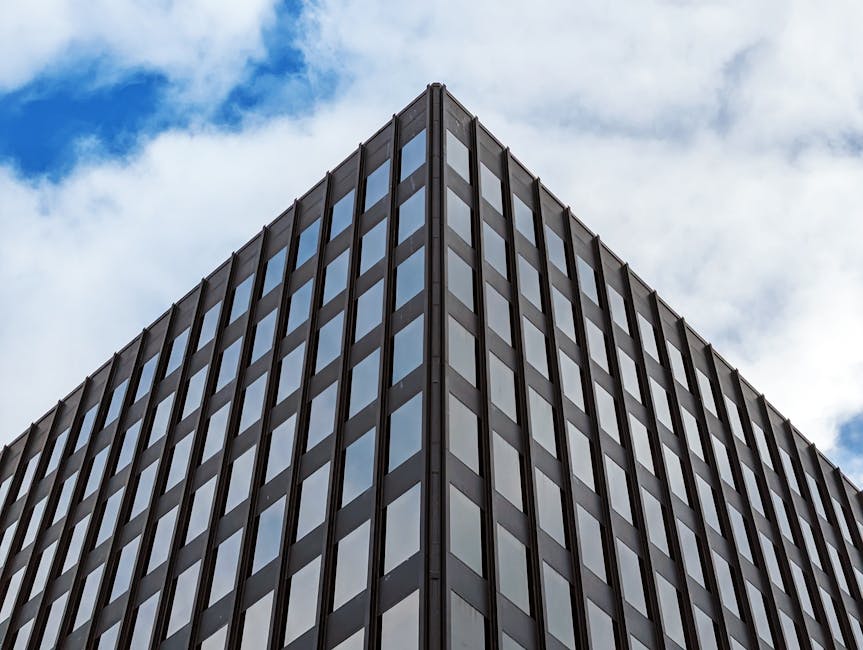

Find me the top-rated commercial HVAC companies in Halifax and you'll find that choosing the right partner for your business's heating, cooling, and ventilation needs directly impacts employee comfort, customer experience, and your bottom line. When systems fail, you face costly downtime, uncomfortable conditions, and potentially damaged equipment. With 42 Heating Ventilating and Air Conditioning HVAC contractors currently operating in the Halifax Regional Municipality according to the Procore Construction Network, knowing which companies deliver consistent reliability, certified expertise, and comprehensive service becomes essential for business owners and facility managers.
Quick Answer: Top Commercial HVAC Companies in Halifax
Based on industry ratings, certifications, and years of proven experience, top-rated commercial HVAC companies in Halifax typically share these characteristics:
For expert guidance on modern HVAC solutions, visit our comprehensive commercial HVAC guide. If you need immediate assistance, contact our certified team today.
The right commercial HVAC partner doesn't just repair equipment—they design systems that reduce energy consumption, maintain optimal indoor air quality, and protect sensitive equipment like servers and refrigeration units that your business depends on.
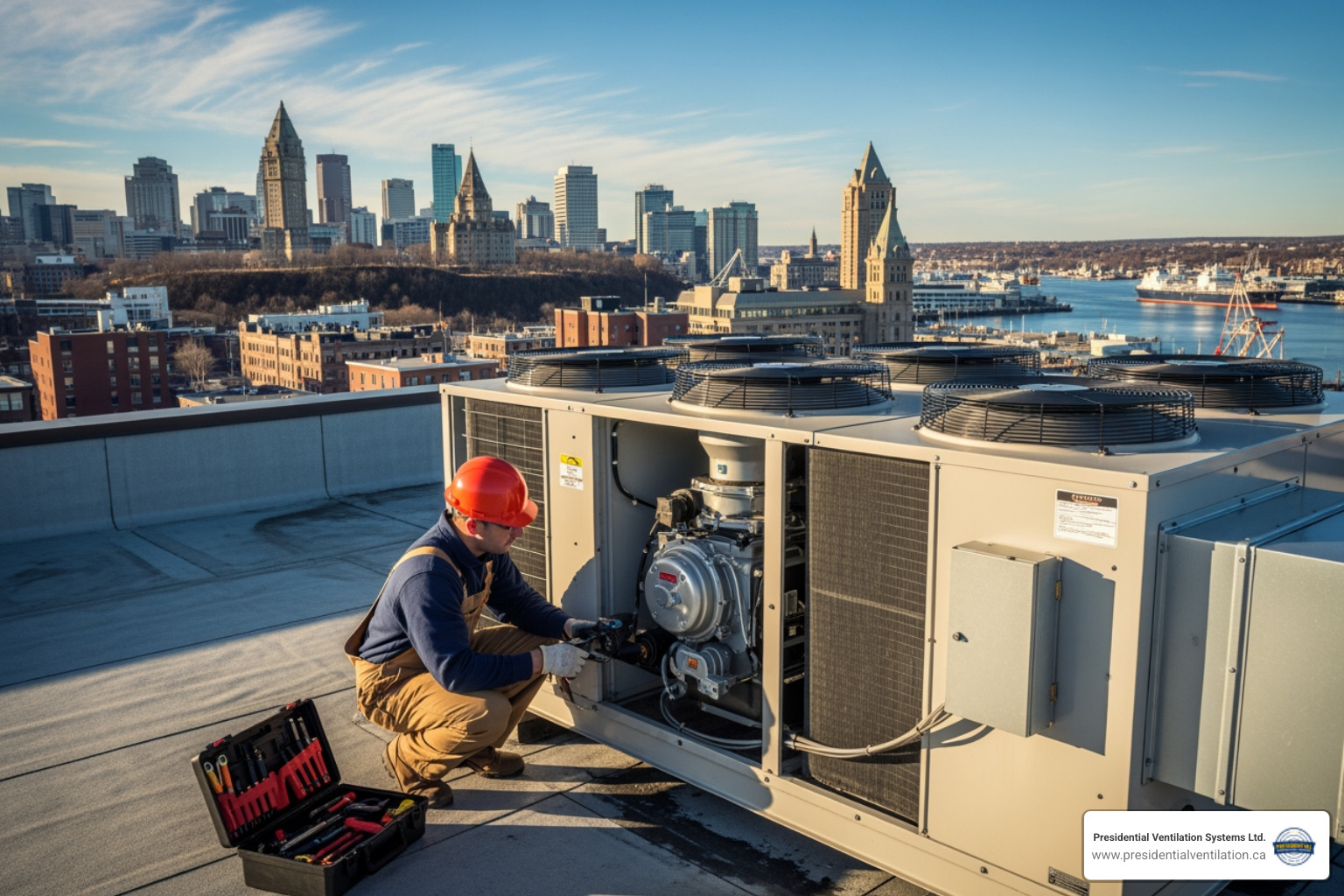
When you’re looking to find me the top-rated commercial HVAC companies in Halifax, you're not just searching for someone to fix a problem; you're looking for a partner. A truly top-rated company stands out through several crucial factors that ensure reliability, customer satisfaction, and adherence to the highest industry standards within the Halifax Regional Municipality (HRM).
A top-rated commercial HVAC company builds its reputation on a foundation of proven experience, a deep understanding of the unique climate challenges in Nova Scotia, and an unwavering commitment to client success. This commitment extends beyond basic service to encompass comprehensive solutions designed for the long haul. For a deeper dive into what makes a commercial HVAC service truly exceptional in our region, check out our insights on Commercial HVAC Halifax.
Experience is arguably the most significant factor in defining a top-rated commercial HVAC company. We're talking about more than just years in business; it’s about the depth and breadth of knowledge gained from successfully completing countless projects. Companies with over 30 years of experience, or those with teams boasting a combined century of expertise in commercial refrigeration and HVAC, bring an invaluable level of insight to every job. This extensive background means they've encountered and solved nearly every challenge imaginable, from complex system designs for new construction to intricate retrofits for heritage buildings.
This experience translates into superior project management skills, ensuring that every installation, maintenance, or repair is executed efficiently and effectively. It also means a thorough understanding of local building codes and regulations, preventing costly delays and ensuring compliance. A seasoned company can service a diverse range of industries, including retail spaces, busy office buildings, and demanding industrial facilities across our service areas like Halifax, Dartmouth, and Bedford. We bring over 30 years of experience to every commercial HVAC project we undertake, understanding the nuances of different commercial environments.
The mark of a truly professional and top-rated commercial HVAC company often lies in its certifications and affiliations. These aren't just badges; they represent a commitment to ongoing training, adherence to stringent industry standards, and a dedication to quality assurance.
For instance, Red Seal Certified technicians are highly trained professionals whose skills are recognized across Canada, ensuring that your HVAC systems are in the hands of experts. Membership in organizations like the Heating, Refrigeration and Air Conditioning Institute of Canada (HRAI) signals a company's dedication to industry best practices and continuous improvement. As a leading Daikin Comfort Pro Dealer, we exemplify a commitment to offering high-quality, energy-efficient solutions supported by extensive product knowledge. These certifications and affiliations are critical for ensuring safety, efficiency, and the longevity of your commercial HVAC investment. They also speak to a company's professionalism and reliability, which is often reflected in their online presence and reputation, much like a well-designed website by Roddis Communications reflects a company’s commitment to quality.
A top-rated commercial HVAC company offers more than just basic heating and cooling. They provide a comprehensive suite of services that cater to every aspect of your commercial facility's climate control and operational needs. This includes:
This holistic approach means you have a single, trusted partner for all your commercial HVAC requirements. Whether you're planning a new build or upgrading an existing system, our expertise in HVAC Installation Halifax NS 2025 ensures you receive the most advanced and efficient solutions available.
For businesses in Halifax, maintaining a comfortable and healthy indoor environment is non-negotiable. This requires a commercial HVAC partner who can provide a full spectrum of essential services, from initial system design and precise installation to ongoing maintenance and reliable repair.
Understanding the unique demands of commercial spaces, a top-rated company will offer solutions that are not only effective but also energy-efficient and compliant with all local regulations. For a comprehensive overview of how to optimize your commercial space, consult our Commercial Ventilation Halifax Ultimate Guide.
The foundation of an efficient commercial HVAC system begins with professional installation. Whether it's a brand-new facility, a renovation requiring retrofitting older buildings, or a critical system upgrade, the installation process demands precision and expertise. Top-rated companies excel in:
Our team has extensive experience providing professional Commercial HVAC Bedford and throughout the HRM, ensuring that your commercial HVAC installation is done right the first time, delivering reliable performance for years to come.
Preventative maintenance is the unsung hero of commercial HVAC. It's the key to avoiding unexpected breakdowns, extending the lifespan of expensive equipment, and maintaining consistent comfort levels. The benefits of a proactive maintenance program are substantial:
A top-rated commercial HVAC company will offer custom maintenance programs custom to your specific equipment and operational needs. These programs ensure regular inspections, cleaning, and adjustments, keeping your system in peak condition. For more details on maintaining peak performance, explore our guide on Commercial Ventilation Maintenance Halifax NS.
Even with the best maintenance, commercial HVAC systems can sometimes encounter issues. When they do, reliable and swift repair services are paramount to minimize downtime and disruption to your business. A top-rated company offers:
While we understand the urgency of repairs, our focus is on delivering a lasting solution rather than a quick fix. Our commitment to thorough and effective repairs is steadfast, whether it's a complex heat pump issue or a general system malfunction. Our expertise extends to all types of commercial HVAC equipment, ensuring that businesses across our service areas, including Cole Harbour, Dartmouth, and Mount Uniacke, receive prompt and professional attention. For comprehensive repair guidance, you might find valuable information in our Commercial Heat Pump Repair Guide Stewiacke.
When you set out to find me the top-rated commercial HVAC companies in Halifax, it’s not just about who can install or fix a system, but who can provide the right system and service for your specific business needs. This involves considering factors like energy savings, the suitability of various systems for your building type, and how well they perform in Halifax's unique climate.
Choosing the right partner means selecting someone who understands these considerations deeply and can offer custom Commercial Ventilation Solutions that optimize both comfort and operational costs.
In Nova Scotia, commercial heat pumps have become an increasingly popular and intelligent choice for businesses. Their numerous advantages make them particularly well-suited for our climate:
Our expertise ensures that businesses can access Affordable Commercial Heat Pumps Service in Cole Harbour NS, providing a smart, sustainable, and cost-effective solution for your commercial comfort needs.
The integrity and efficiency of your commercial HVAC system depend heavily on the expertise of the technicians who install and maintain it. This is where the value of certified technicians truly shines for your business:
This commitment to certified expertise extends to all related services, including our Best Commercial Electrical Mount Uniacke NS solutions, ensuring that all components of your commercial comfort system are handled by the best in the business.
When seeking to find me the top-rated commercial HVAC companies in Halifax, it’s crucial to consider their service area. A company’s geographic coverage directly impacts their responsiveness and ability to provide timely support. A truly top-rated company will offer extensive coverage across the Halifax Regional Municipality (HRM), ensuring that businesses throughout the region receive prompt and efficient service.
Our service extends throughout the HRM, including key areas like:
This broad coverage highlights the importance of local expertise. A company familiar with the specific environmental challenges and commercial building types in these areas can offer more effective and custom solutions. This local presence ensures prompt support availability, which is critical for minimizing downtime and maintaining business continuity.
A preventative maintenance plan for your commercial HVAC system offers numerous benefits that extend far beyond simply keeping your equipment running. It significantly helps to prevent costly breakdowns, which can disrupt operations and lead to uncomfortable conditions for employees and customers. Regular maintenance also lowers energy bills by ensuring your system operates at peak efficiency, preventing energy waste. It ensures consistent indoor air quality, which is crucial for health and comfort, and extends the lifespan of your valuable HVAC equipment, delaying the need for expensive replacements. Furthermore, many plans offer priority service, meaning faster response times when issues do arise.
Upgrading to a modern, high-efficiency HVAC system is a smart investment for several reasons. Primarily, it leads to significant energy savings, as newer systems are designed to consume less power to achieve the same or better heating and cooling. This translates directly into lower operating costs for your business. You'll also experience improved comfort and climate control, thanks to more precise temperature regulation and advanced features. Modern systems often offer better reliability and fewer repairs, reducing downtime and maintenance headaches. Finally, upgrading can improve your property value and provide access to cutting-edge technology like smart controls for improved management.
VRV (Variable Refrigerant Volume) or VRF (Variable Refrigerant Flow) systems are advanced HVAC technologies that provide zoned heating and cooling. Unlike traditional systems that cool or heat an entire building uniformly, VRV/VRF systems allow different areas (zones) to be heated or cooled independently and simultaneously. This makes them highly energy-efficient, as they only deliver conditioned air where and when it's needed. They are ideal for multi-unit buildings, office complexes, or commercial spaces with diverse heating and cooling needs, such as a combination of offices, server rooms, and retail areas. Their ability to provide simultaneous heating and cooling in different zones makes them incredibly versatile and efficient for complex commercial environments.
Choosing the right commercial HVAC partner in Halifax is a decision that impacts your business's operational efficiency, comfort, and bottom line for years to come. We've explored the importance of proven experience, the value of certified technicians, and the undeniable benefits of proactive maintenance. A top-rated company offers comprehensive services, from expert installation of advanced systems like commercial heat pumps and VRV/VRF, to reliable repairs and custom maintenance plans, all delivered by professionals deeply familiar with the Halifax Regional Municipality.
Our commitment is to provide commercial clients across Halifax, Dartmouth, Bedford, and all our service areas with exceptional service and energy-saving solutions. With over 30 years of experience, a team of Red Seal Certified technicians, and our status as a leading Daikin Comfort Pro Dealer, we bring unparalleled expertise and dedication to every project. For comprehensive commercial HVAC solutions that ensure your business runs smoothly and comfortably, explore our HRV Systems.